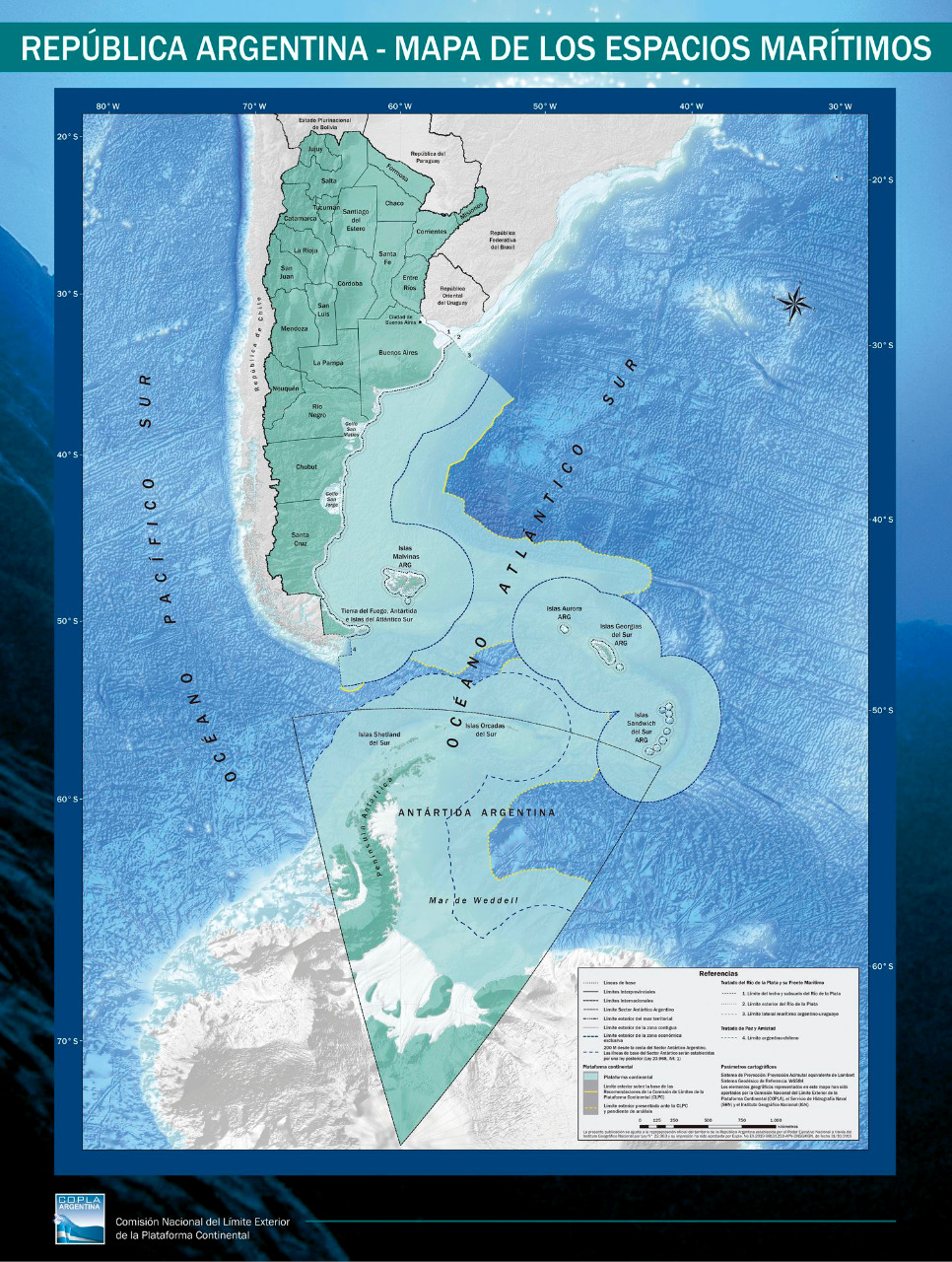RIO DE JANEIRO, BRAZIL – Argentina has grown under the Atlantic. In 2016, the United Nations Convention on the Law of the Sea approved Argentina’s claims on its continental shelf. Since August, through a law passed in Congress, this platform and much of the Antarctic territory (not internationally recognized) are included in a new map of the country that will soon be distributed to all schools.

The territorial expansion involves 1.7 million square kilometers (for the sake of illustration, the area of Spain is just over half a million square kilometers) and grants Argentina sovereign rights over the mineral wealth of this marine soil and subsoil.
The history of ocean expansion began under the presidency of Carlos Menem in 1995 with the enactment of the UN Convention. At the time, Frida Armas Pfirter was a doctor in Public International Law and worked for the Supreme Court. In 1997, she was in charge of coordinating the National Commission on the Outer Limit of the Continental Shelf, and since then she has not ceased to address the issue. More than a dozen scientific expeditions under harsh weather conditions (after the 2001 crisis, ships ceased to be paid and they retained data) enabled locating the slope of the continental crust and examining its sediments. Between 2009 and 2016, 20 years of work were completed on the 800 kilograms of paper that were brought in as documentation for the International Convention.
The new limits were approved by the Convention (an independent technical commission supervised by the UN), which was celebrated as a great national success by Mauricio Macri’s administration. But, for some reason, the then president did not enact the expanded map into a law. This was done on August 25th this year by President Alberto Fernández. “We have already printed 15,000 new maps, we need 50,000 for each of Argentina’s 42,000 schools to have its copy. New nautical charts will also be produced,” explains Dr. Armas.
International legislation establishes the absolute sovereignty of countries up to 12 nautical miles (about 22 kilometers) beyond the coast. Then, up to 200 nautical miles (about 370 kilometers), rights are recognized as Exclusive Economic Zones. The extension of the submarine platforms allows that in some regions of Argentina, such as the Patagonian Gulf of San Jorge, the economic zone is extended up to 369 miles, 683 kilometers into the sea.
Under the current definition, Argentina becomes a bicontinental country, with presence in America and Antarctica. Traditionally, the claimed Antarctic territory was drawn in a little square by the coast, something that General Perón already complained about in the 1940s. Now it is framed in its actual location, with which Tierra del Fuego, once the southernmost point on the map, virtually a port at the edge of the world, is now in the almost exact center of the country.
Seven nations claim Antarctic territory: Argentina, Chile, Australia, New Zealand, the United Kingdom, France (for its expedition to Tierra Adelia in 1840) and Norway (for its expedition to Pedro I Island in 1821). These claims are recognized in the Antarctic Treaty as pre-1961, but remain suspended and unresolved.
In the new Argentinean map, the problem of British possessions in the South Atlantic is included: Falklands, Georgia and Sandwich. The waters controlled by the United Kingdom represent “almost half of Argentina’s economic zone,” according to Daniel Filmus, secretary of the government for the Falklands, Antarctica and the South Atlantic, and occupy much of the “world’s most important fishing reserve”.
For Filmus, the UN’s endorsement of the expanded map “reiterates Argentina’s sovereignty” over the Falklandd and other British islands in the region. Argentine Foreign Minister Felipe Solá stressed that the recently passed territorial law “will increase legal security for the granting of concessions for the exploration and exploitation of oil, minerals and sedentary species. “We own the water column, the seabed and the subsoil,” he said.
Source: El País

